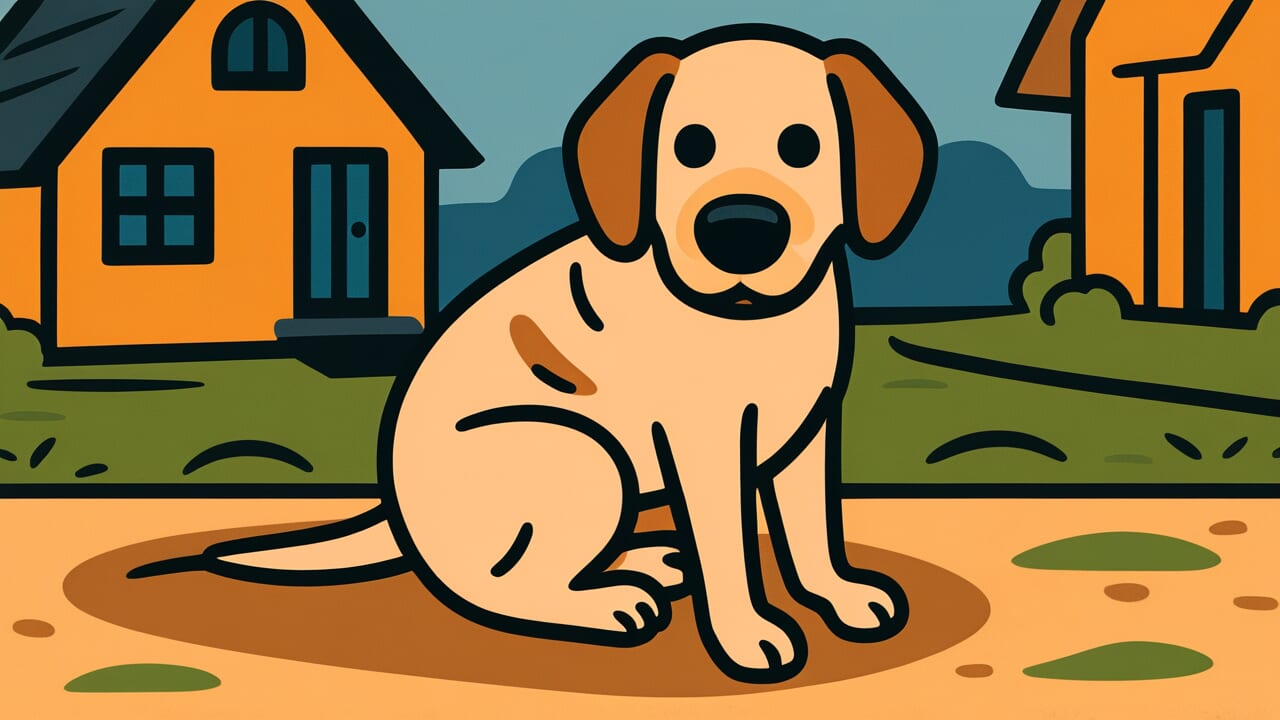How to Read “The skinny dog in front of the house”
Ie no mae no yase inu
Meaning of “The skinny dog in front of the house”
This proverb describes something that is close by but useless, like a skinny dog in front of the house. It refers to things that should have value but go unused because they are too close at hand.
These things are treated as if they don’t exist at all.
People use this saying when pointing out overlooked resources, talents, or abilities of people nearby. It warns against the foolishness of looking far away while missing important things right at your feet.
This lesson remains important today. We often seek new things or external solutions while overlooking what we already have.
The proverb continues to capture this situation perfectly.
Origin and Etymology
The exact literary origin of this proverb is difficult to trace. However, the phrase likely emerged from observations of everyday Japanese life.
In old Japan, dogs were often tied up in front of houses or in yards as guard dogs. If a dog kept to protect the home became skinny, it meant the dog wasn’t receiving proper care.
The dog was right there every day, yet its existence wasn’t being utilized. Something that should be useful was too close to be valued.
This expression sharply points out a psychological blind spot in humans. We value things that are far away or hard to obtain.
But we overlook things that are too close and seem too ordinary. The proverb captures this human tendency through the concrete image of a skinny guard dog.
The saying likely arose naturally in common life during the Edo or Meiji periods. It reflects the Japanese ability to find life lessons in everyday scenes.
Usage Examples
- Not using such talented employees is like the skinny dog in front of the house
- Buying expensive equipment but not mastering it is exactly like the skinny dog in front of the house
Universal Wisdom
This proverb reveals a universal truth about human nature: our tendency toward shortsighted value judgments. We see brilliance in distant or hard-to-get things.
But things right next to us become invisible because they seem too ordinary.
Why do humans behave this way? It relates to how scarcity creates perceived value and how familiarity dulls our senses.
Our brains process things we see daily as “unimportant information.” Just as we don’t notice the dog in front of the house getting skinny, we miss changes and value in familiar things.
This psychology applies to relationships too. We overlook the goodness of family and old friends while getting excited about new encounters.
We dismiss talents and resources at hand while seeking external ones. Our ancestors understood this human foolishness.
What truly matters is often closest to us. But recognizing this requires conscious effort.
For hundreds of years, this proverb has taught us the courage to look at what’s right beneath our feet.
When AI Hears This
The human brain confuses “ease of access” with “actual value” when judging information importance. The dog in front of the house has nearly zero acquisition cost for the brain.
So the brain unconsciously judges “this information isn’t important.” Meanwhile, a rare distant dog has high acquisition cost, creating the illusion of “valuable information.”
This is a paradoxical effect of availability heuristics in cognitive psychology.
More interesting is the inverse relationship between physical and psychological distance. The dog in front of the house is physically closest but becomes psychologically most distant.
This happens because human attention systems are designed to detect “change.” A dog in the same place every day gets treated like background noise by the brain.
Visual research shows attention to stationary objects drops sharply over time.
This phenomenon is rational from an information processing efficiency standpoint. It’s a strategy to concentrate limited cognitive resources on monitoring changing environments.
But in modern society, this brain energy-saving function backfires. We keep missing the nearby targets we should observe most, like family health changes or early signs of workplace problems.
Lessons for Today
This proverb teaches you the importance of “the habit of reassessing what you already have.” Before rushing to learn new skills, reflect on whether you’re fully using your existing knowledge and experience.
At work, look for hidden talents in current team members before searching for new hires. At home, consider whether you truly master your current tools before buying new appliances.
In relationships, ask yourself if you’re nurturing connections with people nearby before seeking new encounters.
The method to rediscover value in familiar things is simple. Once a week, take time to ask yourself, “What do I have that I’m not fully utilizing?”
This small habit can become the key to enriching your life. Looking far ahead matters, but don’t forget to shine light at your feet.
The treasure you’ve been searching for might be right there.



Comments